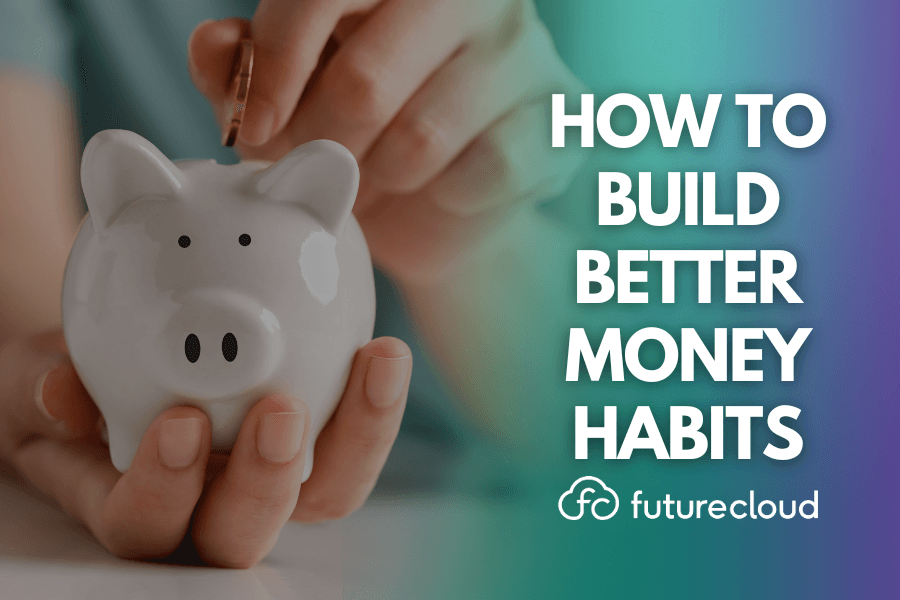Let’s be honest, managing your money well isn’t always as easy as it sounds.
With rising bills, everyday costs creeping up, and life moving at full speed, it’s no wonder so many of us feel like we’re constantly trying to catch up financially.
But here’s the thing, good money habits aren’t about being perfect with your money. It’s about having a plan, making a few smart changes, and sticking with them.
In this blog, we’ll break down some simple steps to help you build better money habits, whether you’re trying to save, reduce debt, or just feel a bit more in control.
And don’t worry, we’re not here to tell you to stop buying coffee or cut out all your treats. It’s about balance, not restriction.
Why good money habits matter
Building better financial habits means less stress, more freedom, and being prepared when life throws something unexpected your way.
This could be saving for your first home, trying to stay on top of bills, or looking ahead to retirement, how you manage your money daily makes a big difference in the long run.
1. Know where your money’s going
The first step? Get clear on your current situation.
It sounds obvious, but a lot of people don’t actually know where their money goes each month. Before you make any changes, take some time to go through:
- Your monthly income
- Your regular bills (rent/mortgage, utilities, subscriptions)
- Your spending habits (groceries, eating out, shopping, etc.)
- Any debts you’re paying off
- What (if anything) you’re saving
2. Set clear goals for your money
It’s a lot easier to stay motivated if you know what you’re working towards.
Rather than just saying “I want to save more,” try to be specific:
- “I want to save £2,000 for a holiday by next summer.”
- “I want to clear my credit card debt by March.”
- “I want to build up £500 as a rainy-day fund.”
Break your goal down into monthly (or even weekly) targets. That way, you’ll know if you’re on track, and it won’t feel so overwhelming.
3. Create a simple budget that actually works for you
Budgeting doesn’t have to be strict or complicated. It just needs to work for you.
A great starting point is the 50/30/20 rule:
- 50% for essentials (rent/mortgage, bills, food)
- 30% for wants (meals out, holidays, shopping)
- 20% for savings and debt repayments
You don’t have to follow this exactly, but it’s a good framework to help you balance your money.
4. Automate where you can
One of the easiest ways to build better money habits is to take the decision-making out of it.
- Set up automatic transfers to your savings account each payday.
- Automate your bill payments to avoid late fees.
- Use round-up savings apps (like Monzo, Plum or Chip) that save your spare change every time you spend.
When saving becomes automatic, you won’t miss the money, and you’ll build a pot without even thinking about it.
5. Watch out for spending triggers
We’ve all got spending habits we fall into, maybe it’s impulse buys when we’re stressed, or online shopping when we’re bored.
Start paying attention to your patterns. Then, try to replace those habits with something better. For example:
- Wait 24 hours before buying something you don’t really need.
- Unsubscribe from promo emails if they tempt you to spend.
- Set a weekly treat budget so you don’t overspend without realising.
6. Build a safety net (emergency fund)
An emergency fund is one of the best money habits you can build.
It’s your backup when things go wrong, car repairs, a broken boiler, or a sudden change in income. Aim to save at least 3 months’ worth of expenses over time.
Don’t panic if that sounds like a lot. Start with a small goal, maybe £10 or £20 a week, and build from there.
Keep your emergency fund in a separate savings account that’s easy to access but not too easy to dip into.
7. Tackle your debts with a plan
Debt can feel overwhelming, but a solid plan makes all the difference.
There are two popular ways to pay off debt:
- Snowball method – Focus on your smallest debt first, then move to the next one. Great for motivation.
- Avalanche method – Focus on the debt with the highest interest first. Saves you more in the long run.
Make at least the minimum payments on all debts and try to put extra towards the one you’re focusing on.
8. Check in regularly
Once you’ve got better money habits in place, make time to check in every month or so.
- Are your goals still the same?
- Have your expenses changed?
- Could you be saving more?
- Are there any bad habits creeping back in?
Think of it like a financial “health check.” Regular reviews keep you on track and stop things from slipping.
9. Don’t be afraid to ask for help
At the end of the day, we all need a bit of help sometimes. Whether you’re trying to save, deal with debt, or plan for the future, you don’t have to figure it all out on your own.
At Future Cloud, we help people make smarter decisions with their money every day, personally and professionally.
If you want help budgeting, saving more, planning ahead, or simply getting organised, we’re always happy to chat.
10. Final thoughts
Improving your money habits doesn’t happen overnight. But small, consistent steps really do add up.
Start with one or two changes, build from there, and give yourself a bit of grace along the way.
If you’re looking for straightforward, no-nonsense financial advice, we’re here for you. Get in touch!
Email us: info@future-cloud.co.uk
And don’t forget to follow us on social media for the latest updates, tips, and more!
